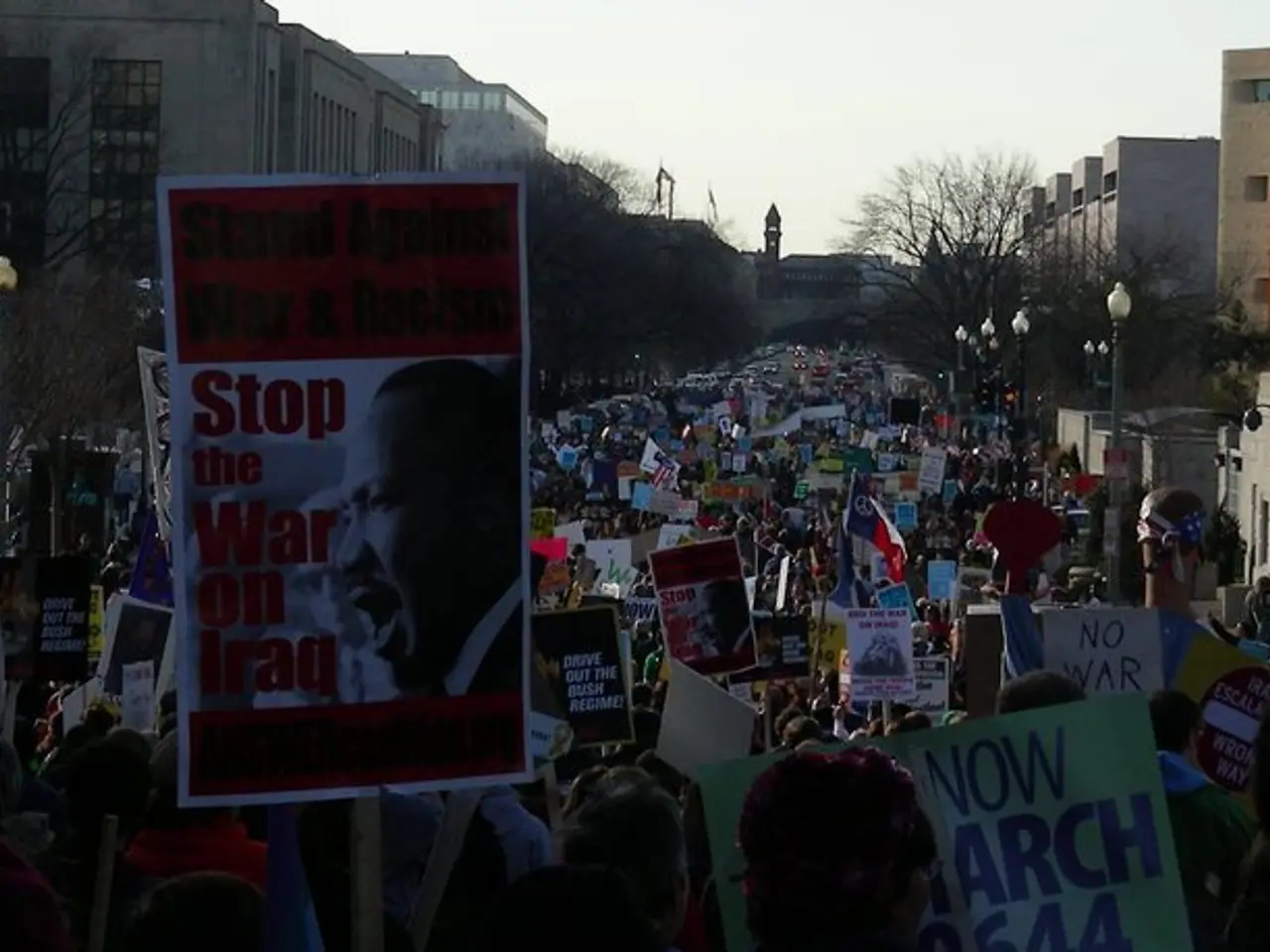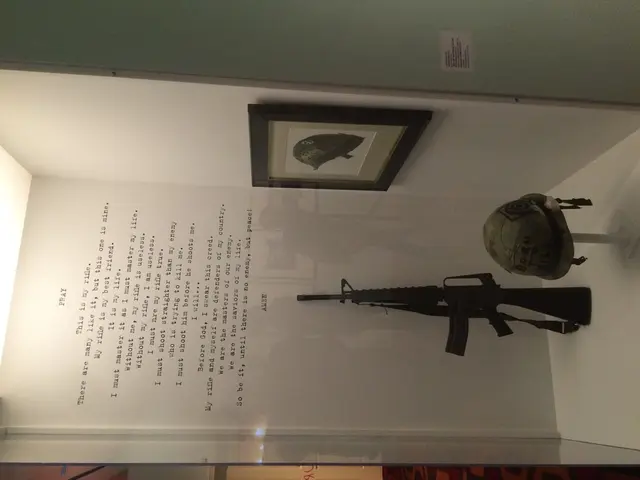Protests escalate in Georgia as eight demonstrators are sentenced, sparking defiant responses with the cry, "Let the regime tremble at the might of mothers!"
In the heart of the Caucasus region, Georgia has been experiencing significant changes, and this is evident in the recent sentencing of eight individuals in connection with violence-related charges during anti-government protests.
All eight individuals, belonging to the Lelo Party, were detained during protests that began on 28 November. Among them are three opposition politicians, who were initially charged with organising group violence, but had their charges reclassified.
Two of the individuals, Kadzelashvili and Kasradze, were detained based on an alleged secret recording. However, their lawyers have raised concerns about insufficient evidence in their cases. The remaining detainees were charged with participating in group violence.
The sentences, ranging from two to two-and-a-half years in prison, have been criticized by government critics as fabricated. Transparency International (TI) Georgia noted that even if the defendants threw any objects, they did so spontaneously and chaotically, not in a pre-agreed and organized manner.
In the case of Tsetskhladze, another individual charged, a 19-year-old who founded a student organization during the anti-government protests, the prosecution claimed that his Facebook live broadcast incited violence during the protests. However, Tsetskhladze denied this, stating that he was discussing self-defence against police violence, not attacking them.
Chikaidze, the lawyer for Tsetskhladze, stated that there was no direct evidence linking his client to influencing anyone in the case. Furthermore, according to Chikaidze, there was no video evidence of Tsetskhladze's actions on 28 and 29 November, the dates some demonstrators are accused of violent acts.
The alleged damage caused by the objects allegedly thrown by the protesters is not visible in videos provided by the prosecution. In the cases of Miminoshvili and Goshadze, expert analysis determined that the videos submitted by the prosecution had been edited, which was revealed through several independently mismatched images.
None of the police officers presented as victims in court by the investigation could identify a specific protester who had caused them harm. Family members of the detainees have been campaigning for their release.
The sentences were met with protests and demonstrations, with hundreds of people gathering to voice their disapproval. The cases of the alleged participants, according to RFE/RL, are largely identical to those of the alleged organizers, differing only in the defendants' names and the objects reportedly thrown by the protesters.
This sentencing has raised questions about the fairness of the judicial system in Georgia and has sparked a debate about the freedom of speech and assembly in the country. The situation remains fluid, and it is expected that this issue will continue to be a topic of discussion in the coming days.
Read also:
- Peptide YY (PYY): Exploring its Role in Appetite Suppression, Intestinal Health, and Cognitive Links
- Easing Pedestrian Traffic Signal Pressure
- Astral Lore and Celestial Arrangements: Defining Terms & In-Depth Insights - Historical Accounts & Glossary of Cosmic Mythology
- ICE directed to enhance detention conditions following NYC immigrants' allegations of maltreatment








